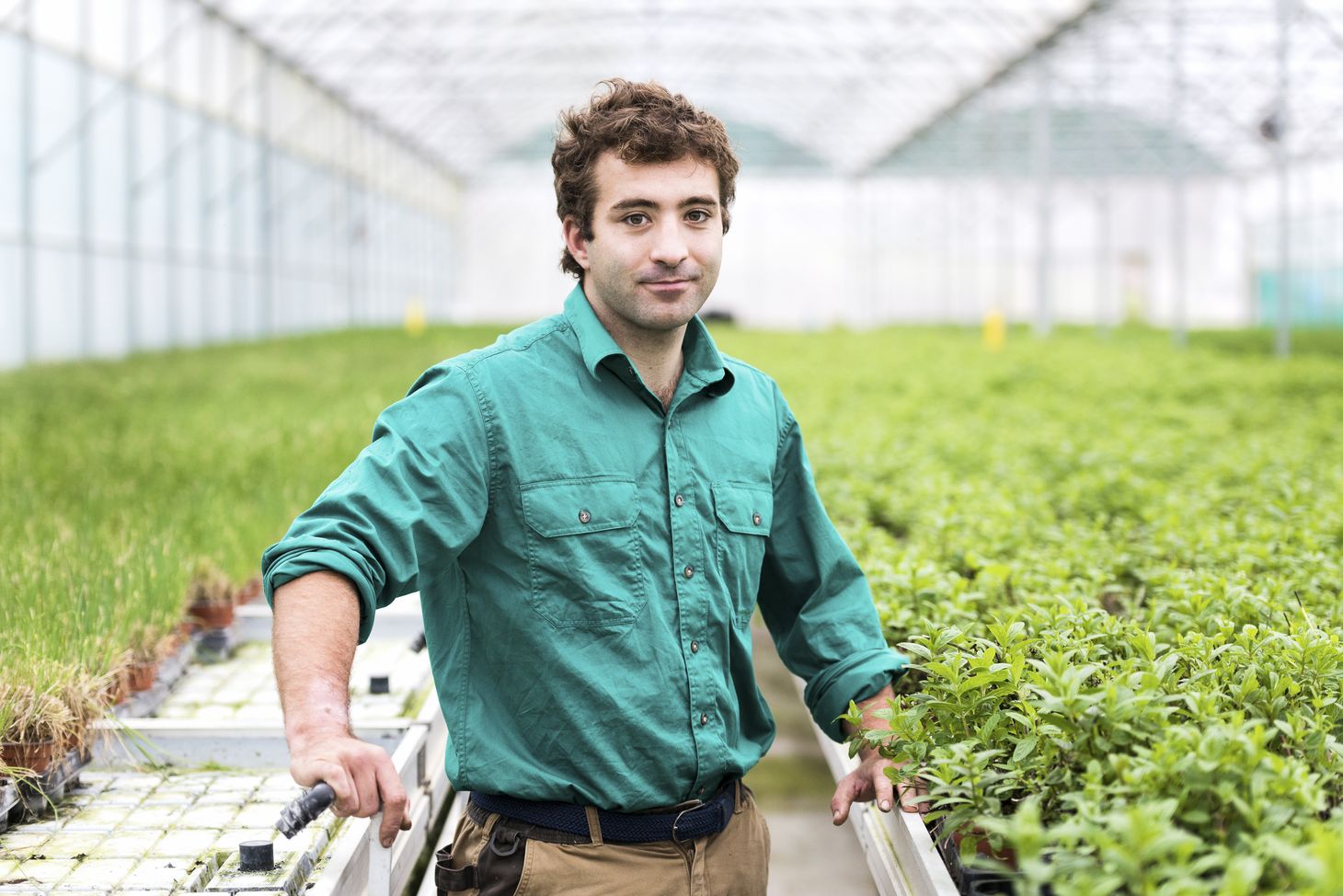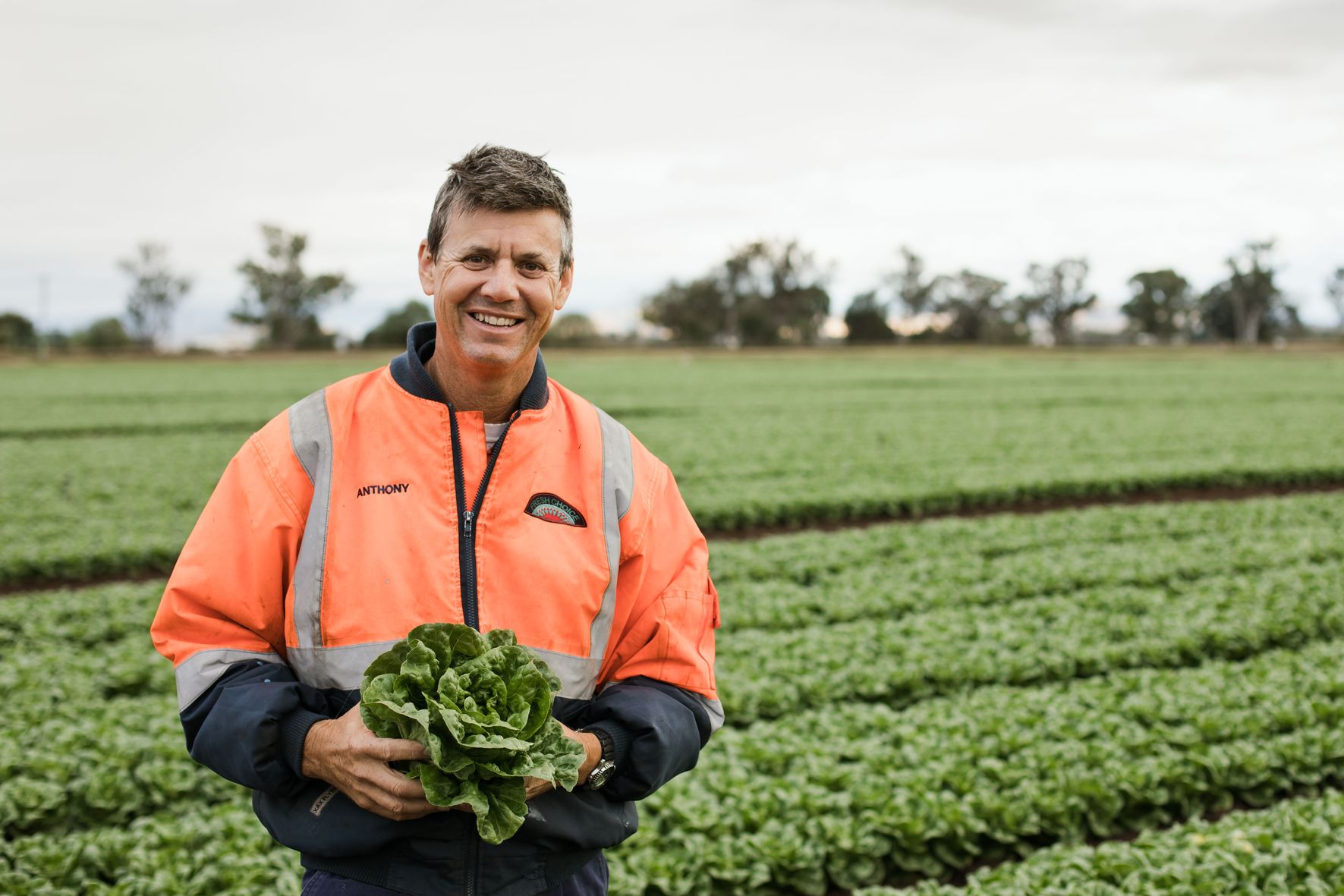
Anthony Staatz: Using innovative technologies and systems to enhance productivity
9 July 2017Vegetable Industry Market Access and Development Program
17 July 2017Earl Yandall is a 23-year-old grower from Wavertree Farms in Peats Ridge, New South Wales. We profiled him in the July/August 2017 edition of Vegetables Australia magazine.
Fast facts
Name: Earl Yandall
Location: Peats Ridge, NSW
Works: Wavertree Farms
Grows: Spinach, chives, mint, dill, coriander and radish
How did you first become involved in the vegetable industry?
Through horticulture studies at the University of Sydney. At university, we visited the Sydney Markets and experienced different aspects of the horticultural industry, which involved packing and marketing. At the end of my third year at uni, I was involved in a two-week trip to the North Island of New Zealand where we saw the growing aspect of the industry which sparked my interest in the vegetable industry. Starting work at Wavertree Farms as an assistant grower was the first time I’d been involved in the vegetable growing industry in a professional working sense (it’s my first full time job since graduating uni).
What does your role in the business involve, and what are your responsibilities?
I am mainly responsible for overseeing the growth of the spinach, chives and mint, which are grown in protective systems. My daily duties include checking the crops for pests, diseases and any deficiencies as well as ensuring they are well irrigated and fertilised. If any problems are found in the crops such as pests or diseases, then amendments are applied.
I am also responsible for the upkeep of the greenhouses and maintenance of the irrigation systems – this includes ensuring that all pH and EC probes are calibrated, filters are clean and pumps are operating efficiently. The biggest responsibility would be crop maintenance ensuring optimal growth by ridding it of pests and weeds.
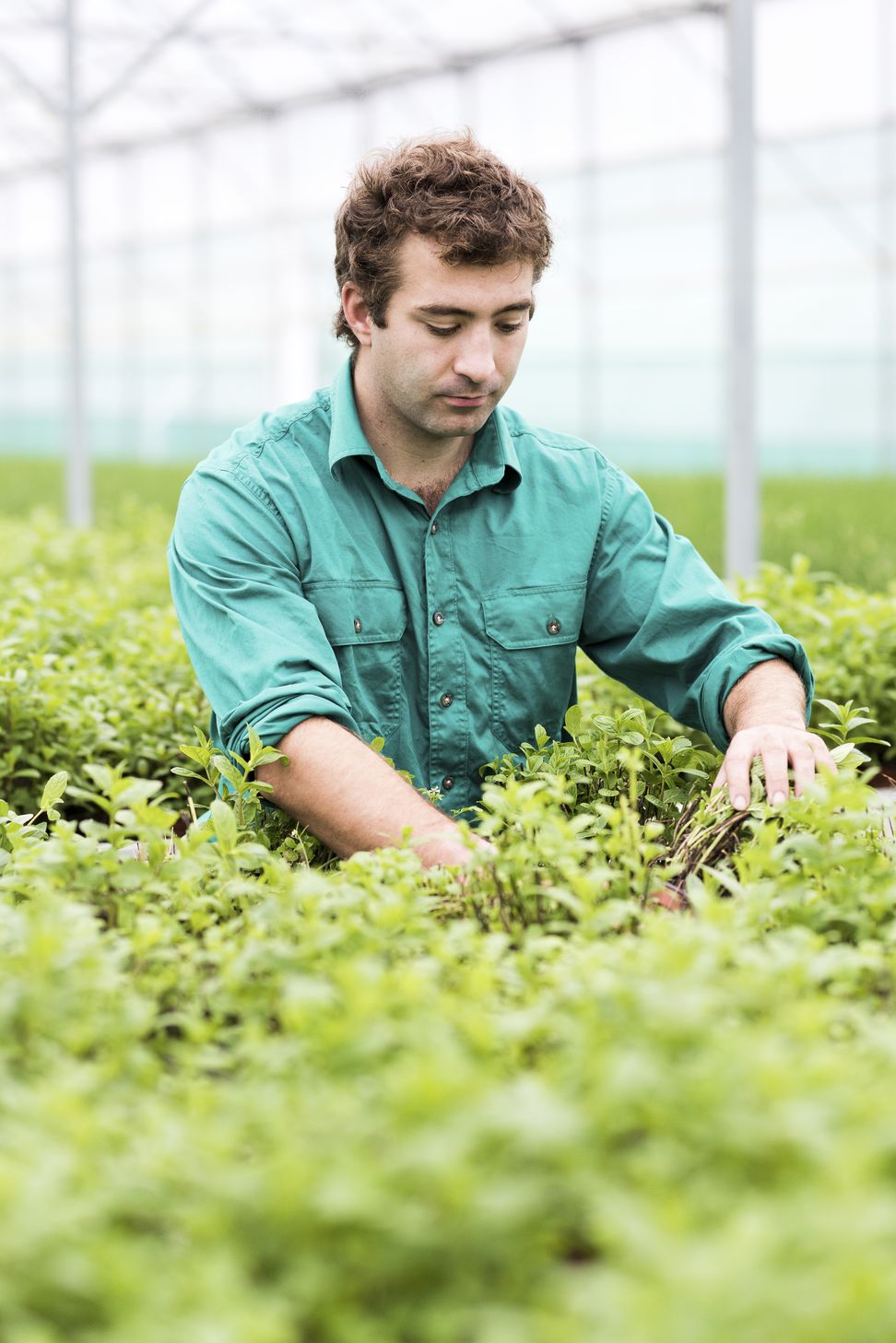
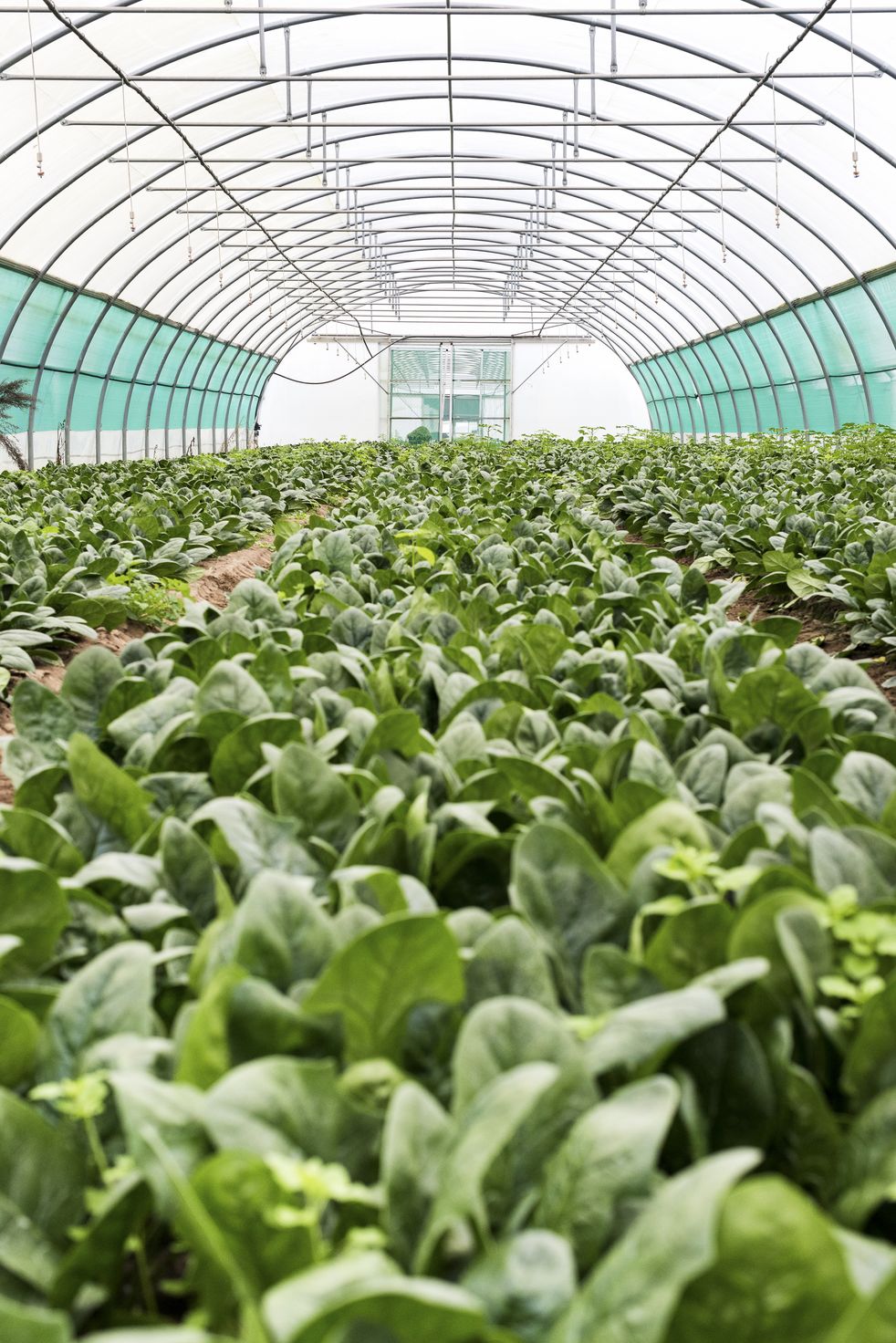
What do you enjoy most about working in the vegetable industry and how do you maintain your enthusiasm?
I enjoy that there is always changes happening in the industry. Every crop grows and behaves differently throughout the year with the changes in seasons. There are always challenges to deal with. You’re always learning on the go, especially about the effects of different climatic conditions and the introduction of new pests and diseases. Not only is the weather changing but so is technology, which is exciting! Always learning new things maintains my enthusiasm.
What are the biggest challenges you face working in the industry, and how do you overcome them?
Having only just been introduced to the industry and growing short season crops that reach maturity in as little as six weeks, having little to no fallow period with an intensive system makes weed and disease reduction hard. But this is eased by working with an experienced mentor and implementing strict cultural practices. I am still learning the effects of different climates and weather patterns as I’m yet to experience a full 12 months. Although it’s difficult, coming into winter and growing cool weather crops alleviates some of the water and pest stresses on the plant.
In your opinion, what areas of research are important to the vegetable industry and your business?
Research in managing pests and diseases is essential as they are evolving and building resistances. Pests and diseases can be a big problem in the vegetable industry and can decimate an entire business. Wavertree has a high diversity and year-round crop production, which is a way of protecting your business against being crippled by a pest or disease. Another big area of research that is worth focusing on is technology, from harvesting to planting and post-harvest storage. Technology is always evolving and with a higher emphasis on reducing labour cost, it is an important area. Also, plant breeding research is important to produce hardier and more robust varieties that can meet changing consumer preferences.
"I enjoy that there is always changes happening in the industry. Every crop grows and behaves differently throughout the year with the changes in seasons."
Where do you see opportunities for growth in the Australian vegetable industry?
As planting, growing and harvesting technology evolves, there is an opportunity to move to a more automated system to reduce labour, which is one of the biggest on-farm costs. There is an opportunity to go into more intensive systems with greenhouses getting cheaper.
Where do you see yourself in five years?
Working in a managerial role as a grower in the horticulture industry.
Through working in the vegetable industry, I am starting to build up a skill set and increase my knowledge in the field by learning the cause and effect of different problems. I am also building manager and leadership skills through working at a big company which wasn’t really possible at uni.
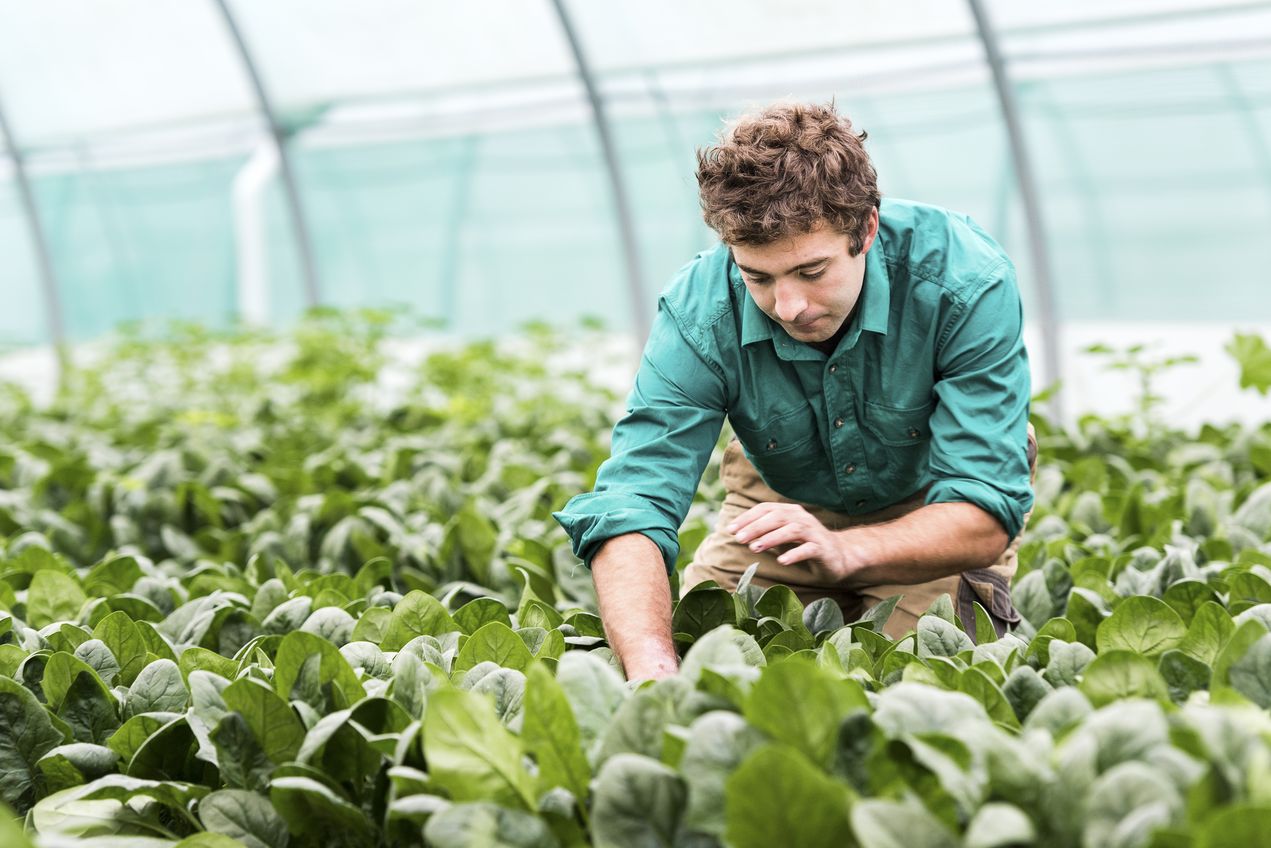
You have a degree in horticulture. What did you study, and how beneficial was it for you?
I completed a Bachelor of Science in Agriculture, majoring in agronomy and horticulture. The things I learned over four years at uni were extremely beneficial. They have helped me with my job in the vegetable industry by giving me a basic rounded knowledge of agriculture, and what is involved in growing. I have learned more through working at Wavertree at an exponential rate from the past few months of practical industry and hands-on experience. This wouldn’t have been possible without the knowledge I had gained from completing my degree.
How do you think more young people could be encouraged to study and take up jobs in the vegetable industry?
I think practical and hands-on experiences at a young age would get them interested, so extension programs that are run through schools would be advantageous in getting young people interested in the vegetable industry. It would be useful to make it more accessible to them and show them that there are numerous opportunities over a number of aspects of the industry.
This grower profile first appeared in the leading magazine for the Australian vegetable industry, Vegetables Australia. If you’d like to subscribe to receive a new edition of Vegetables Australia in your mailbox every two months, use our online subscription form!
Photography credit: Atelier Photography

